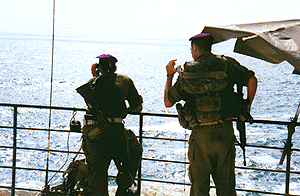
Peace Psychology
PSYC 2850

 | Peace Psychology
|  |
Peace psychology is broad discipline as conflict and the need for peace occurs in all human arenas. Peace psychology research has been conducted in a variety of contexts examining such disparate concerns as domestic violence; school shootings; structural forms of violence (e.g., institutionalized forms of bias and the systematic violation of human rights); and mass violence, including ethnopolitical conflict, genocide, terrorism, and war. Peace psychologists have also worked to develop and assess programs aimed at teaching concepts and strategies of peace, effective conflict resolution skills, as well as reconciliation and reconstruction following conflict. Such programs have been implemented around the globe with such disparate populations as young school age children in the United States to survivors of the Rwandan genocide.Peace psychology is not a stand-alone discipline. Rather it draws on research from other disciplines outside of as well as within psychology, including but not limited to clinical psychology, social psychology, political psychology, media psychology, developmental psychology, political science, history, education, sociology, international relations, and peace studies.
This course examines the key concepts, themes, theories, and practices involved in peace psychology. You will be introduced to the issues of peace and conflict across a wide range of interpersonal, community, national and international contexts. We will focus on multiple levels of analysis from micro to macro, and multi-disciplinary perspectives.
 |
|